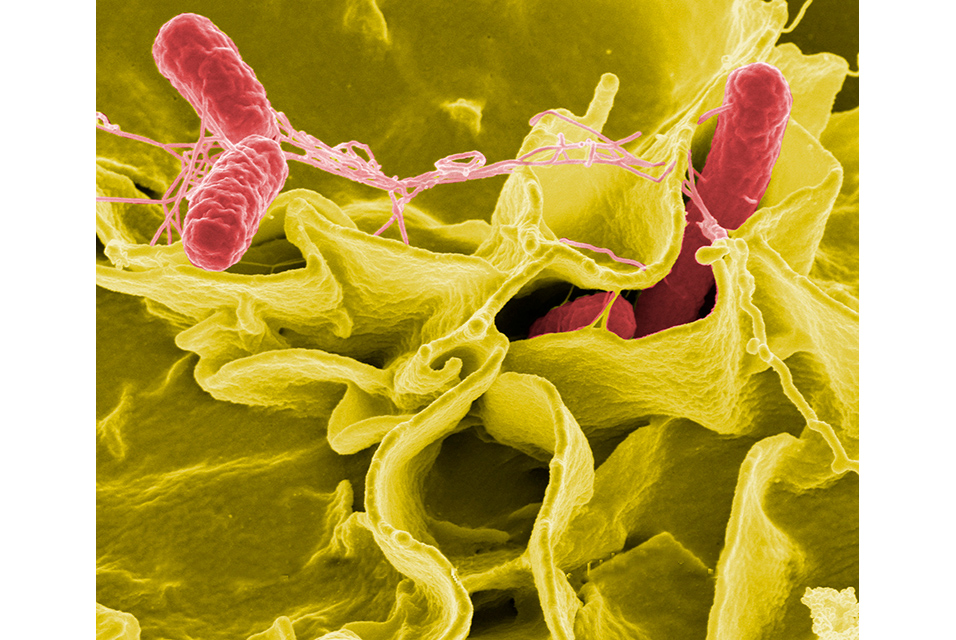NASHVILLE, TN.- The microbial species living in our gastrointestinal tract — the gut microbiota — help protect us against invading pathogens. One way they exert this “colonization resistance” is by producing antimicrobial products, such as the fatty acid propionate. Propionate is used in agricultural animals to limit infection by varieties of Salmonella bacteria, which cause food poisoning in humans.
Now, however, Mariana Byndloss, DVM, PhD, and colleagues have demonstrated that Salmonella can turn the tables and use propionate for its own purposes.
The researchers showed in animal models that in the presence of inflammation, Salmonella changes its metabolism and uses propionate as a source of energy. They demonstrated that propionate metabolism supports expansion of Salmonella in the inflamed gut.
The findings, published in Cell Reports, show that in addition to promoting colonization resistance, propionate can fuel Salmonella growth, changing the understanding of propionate’s role and complicating its use as an antimicrobial treatment.
Graduate student Catherine Shelton and postdoctoral fellow Woongjae Yoo, PhD, are co-first authors of the Cell Reports paper. Other
Vanderbilt authors include Nicolas Shealy, Teresa Torres, Jacob Zieba, M. Wade Calcutt, PhD, and Nora Foegeding, PhD.
The research was supported by The V Foundation for Cancer Research, American Cancer Society, National Institutes of Health (grants AI112541, ES007028, DK007673, DK058404, CA236733), United States Israel Binational Science Foundation, Vanderbilt Institute for Clinical and Translational Research, Dorothy Beryl and Theodore Roe Austin Pathology Research Fund, National Research Foundation of Korea, and Howard Hughes Medical Institute (James H. Gilliam Fellowship).









